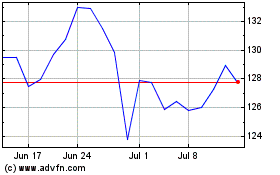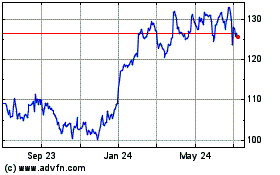
Notice of Exempt Solicitation
NAME OF REGISTRANT: Merck
NAME OF PERSON RELYING ON EXEMPTION: Oxfam
America
ADDRESS OF PERSON RELYING ON EXEMPTION: 226
Causeway Street, Boston, MA 02114
Written materials are submitted pursuant to
Rule 14(a)-6(g)(1) promulgated under the Securities and Exchange Act of 1934. Submission is not required of this filer under the terms
of the Rule, but is made voluntarily in the interest of public disclosure and consideration of these important issues.
Oxfam America urges you to vote FOR Proposal 5
at the Annual Meeting of Merck (MRK) on May 24, 2022.
I. SUMMARY OF RESOLUTION
| RESOLVED: shareholders of Merck & Co, Inc. (“Merck”) ask the Board of Directors to report to shareholders, at reasonable expense and omitting confidential and proprietary information, on whether and how the direct and indirect receipt of public financial support for development and manufacture of a therapeutic for COVID-19 is being, or will be, taken into account when making decisions that affect access to such products, such as sharing intellectual property through voluntary licenses or setting prices. |
Merck holds the intellectual property (IP) rights
to molnupiravir (LAGEVRIO), an oral antiviral, that is approved on an emergency basis for use as a treatment against COVID-19. The drug
was developed through substantial public funding (an estimated US$ 35 million1) provided to Emory University prior to the
emergence of COVID-19.2 Even though Merck has stated it is committed to make the drug widely available, its policies and practices
are insufficient when taking public funding into account. In particular, Merck’s approach creates two risks for the company and
its investors: (1) it creates a reputational risk, and (2) it could undermine economic recovery in key markets that otherwise contribute
to global economic growth and investor returns.
Concerns and shortcomings with Merck’s approach
include the following:
| · | Merck has signed bilateral licensing agreements3
as well as a voluntary licensing agreement with the Medicines Patent Pool for the medicine.4 Yet the agreements cover only
half of the world’s population and exclude many upper-middle-income countries,5 which have experienced twice as many
excess deaths associated with the COVID-19 pandemic as high-income countries.6 |
_____________________________
1 https://www.wabe.org/emory-researchers-think-they-have-a-drug-to-fight-the-new-coronavirus/
2 Molnupiravir was first acquired by Ridgeback Therapeutics,
which then concluded an agreement with Merck to jointly develop and commercialize the drug. https://www.washingtonpost.com/business/2020/06/11/coronavirus-drug-ridgeback-biotherapeutics/;
https://www.businesswire.com/news/home/20200526005229/en/ .
3 https://www.merck.com/news/amid-humanitarian-crisis-in-india-merck-announces-voluntary-licensing-agreements-with-five-indian-generics-manufacturers-to-accelerate-and-expand-
global-access-to-molnupiravir-an-investigational-ora/
4 https://medicinespatentpool.org/licence-post/molnupiravir-mol#:~:text=In%20October%202021%2C%20the%20Medicines,oral%20COVID%2D19%20antiviral%20medicine.
5 https://msfaccess.org/license-between-merck-and-medicines-patent-pool-global-production-promising-new-covid-19-drug
6 https://www.who.int/data/stories/global-excess-deaths-associated-with-covid-19-january-2020-december-2021
| · | For those countries not included in the voluntary
license, Merck states that it is applying a tiered pricing structure.7 However, tiered pricing is a commercial pricing strategy
and does not assure affordable prices, especially in middle-income countries.8 Merck has not disclosed what prices they are
charging middle-income countries excluded from the voluntary license.9 |
| · | Despite U.S. government funding to support the
development of molnupiravir, Merck charged the U.S. government US$ 712 per course for its initial purchase, more than 35 times the expected
generic price.10 |
I. ARGUMENTS IN FAVOR OF A YES VOTE
With the continued emergence of new variants of
COVID-19, waning vaccine immunity and persistent vaccine inequity, appropriate treatment for COVID-19 is a critical element of a durable
response to avert morbidity and mortality. According to the US National Institutes of Health, molnupiravir is recommended for people with
COVID-19 “who are at high risk of progressing to severe disease, and for whom
alternative antiviral therapies are not accessible or clinically appropriate.”11 Merck, which acquired molnupiravir
after substantial investment by the public sector, has received approximately $4.2 billion dollars from sales of the treatment and has
not been transparent about the prices charged for this treatment.12 The company must explain to investors how the public investment
in the discovery and development of the medicine has factored into its decisions with respect to the licensing and pricing of the medicine
in all countries, including the United States.
The current licensing and pricing strategy, which
undermines affordable access for many middle-income countries and requires the U.S. government (and taxpayers) to pay high prices for
the medicine (having already paid for a portion of the discovery and development of the drug): (i) places Merck and investors at risk
of serious reputational harm, and (ii) could undermine economic recovery in key markets that otherwise contribute to global economic growth
and investor returns.
| 1. | Merck’s licensing and pricing of molnupiravir creates a reputational risk for the company and
its investors. |
Merck has established an “access”
strategy for molnupiravir that provides a voluntary license – through bilateral agreements and with the Medicines Patent Pool –
that leaves approximately half of the world’s population without affordable access to the medicine.13 It has also announced
a tiered pricing strategy for its own version of the drug, for which sales are likely to be focused on high-income and middle-income
countries excluded from the license.14
_____________________________
7 https://www.merck.com/news/merck-and-ridgeback-statement-on-positive-fda-advisory-committee-vote-for-investigational-oral-antiviral-molnupiravir-for-treatment-of-mild-to-
moderate-covid-19-in-high-risk-adults/
8 https://www.researchgate.net/publication/51712884_A_win-win_solution_A_critical_analysis_of_tiered_pricing_to_improve_access_to_medicines_in_developing_countries
9 This information does not appear in Merck’s 10-K,
proxy, or latest earnings report.
10 https://www.nytimes.com/2021/10/27/health/covid-pill-access-molnupiravir.html
11 https://www.covid19treatmentguidelines.nih.gov/therapies/antiviral-therapy/molnupiravir/#:~:text=In%20nonhospitalized%20patients%20aged%20%E2%89%A5,(Paxlovid)%2C%20
sotrovimab%2C%20or
12 https://www.merck.com/news/merck-announces-first-quarter-2022-financial-results/
13 https://msfaccess.org/license-between-merck-and-medicines-patent-pool-global-production-promising-new-covid-19-drug
14 https://www.merck.com/news/merck-announces-supply-agreement-with-u-s-government-for-molnupiravir-an-investigational-oral-antiviral-candidate-for-treatment-of-mild-to-
moderate-covid-19/
This communication
should not be construed as soliciting authority to vote any shareholder’s proxy, and no proxy cards will be accepted. Please vote
your proxy in accordance with the instructions set forth in Merck’s proxy statement.
This uneven access strategy attracted criticism
when Merck announced its voluntary license, and it also creates reputational risk for Merck. 15 In its recommendation for the
treatment, the World Health Organization reportedly “acknowledge[d] that cost and availability issues associated with molnupiravir
may make access to low and middle income countries challenging and exacerbate health inequity.”16 These past and potentially
future criticisms are for the following reasons:
| · | Many of the countries excluded from the voluntary
license, or so-called middle-income countries, have faced severe challenges from the COVID-19 pandemic – including Brazil, Thailand,
and Mexico. These countries are required to purchase the medicine from Merck at a “tiered” price, but may be struggling to
secure supplies as high-income countries have purchased more than 40 times as many treatment courses.17 |
| · | Even if there is supply available for middle-income
countries, it may be at an unaffordable price. Merck has not disclosed the prices it is charging but has stated that it is applying a
tiered pricing strategy.18 Tiered pricing is a commercial strategy employed by Merck and other pharmaceutical companies that
often results in unaffordable prices for medicines.19 This has included products marketed by Merck for infectious diseases,
including its human papillomavirus (HPV) vaccine20 and its antiretroviral medicines, such as raltegravir.21 |
Furthermore, Merck is charging high prices in
high-income countries, such as the United States, even though the U.S. government contributed to research and development for the medicine.22
In particular, Merck’s price in the United States is at a price per course that is more than 35 times the expected generic price.23
Merck has already accrued nearly $4.2 billion in molnupiravir sales revenues globally.24 Previously Merck has attracted negative
public attention due to the high prices the company has charged for its HPV25 and HIV/AIDS26 products (including
price hikes for its HPV vaccine). The company could face acute criticism if the U.S. government continues to struggle to secure sufficient
COVID funding for ongoing response needs while paying high prices for molnupiravir despite the prior U.S. government R&D investment.27
| 2. | Merck’s licensing and pricing strategy could undermine economic recovery in countries that play
an important role in the global economy, thereby harming investor returns. |
A lack of access to molnupiravir in middle-income
countries, whether due to a lack of supply or high prices, could threaten economic recovery and undermine investor returns.
_____________________________
15 https://msfaccess.org/license-between-merck-and-medicines-patent-pool-global-production-promising-new-covid-19-drug;
https://www.nytimes.com/2021/10/17/health/covid-treatment-access-molnupiravir.html; https://www.nytimes.com/2022/05/08/us/politics/covid-pills-global-aids-hiv.html
16 https://www.bmj.com/company/newsroom/who-recommends-antiviral-drug-for-patients-with-non-severe-covid-19-at-highest-risk-of-hospital-admission/
17 High-income countries have purchased over 8 million treatment
courses in contrast to 200,000 courses purchased by upper-middle income countries (as of May 2, 2022). See: https://launchandscalefaster.org/covid-19/therapeutics
18 https://www.merck.com/news/merck-and-ridgeback-announce-that-3-1-million-courses-of-molnupiravir-an-investigational-oral-antiviral-covid-19-medicine-have-been-
supplied-to-the-u-s-government-for-use-in-the-united-states/
19 https://globalizationandhealth.biomedcentral.com/articles/10.1186/1744-8603-7-39
20 https://msfaccess.org/right-shot-bringing-down-barriers-affordable-and-adapted-vaccines-2nd-ed-2015
21 https://msfaccess.org/sites/default/files/MSF_UTW_17th_Edition_4_b.pdf;
https://ihsmarkit.com/country-industry-forecasting.html?ID=10659116816
22 https://theintercept.com/2021/10/05/covid-pill-drug-pricing-merck-ridgeback/
23 https://scholar.harvard.edu/files/melissabarber/files/estimated_cost-based_generic_prices_for_molnupiravir_for_the_treatment_of_covid-19_infection.pdf
24 https://www.merck.com/news/merck-announces-first-quarter-2022-financial-results/
25 https://www.fiercepharma.com/pharma/merck-amgen-adopt-double-digit-price-hikes-test-to-pharma-s-drug-cost-limits-analysts
26 https://www.fiercebiotech.com/biotech/merck-rewrites-history-on-pricing-top-aids-drug-isentress-says-ahf#:~:text=Merck's%20current%20Average%20Wholesale%20Price,%2
Dline%20HIV%2FAIDS%20treatment;
https://www.cbsnews.com/news/how-mercks-price-freeze-on-hiv-drugs-kept-prices-red-hot/
27 https://www.washingtonpost.com/health/2022/03/10/congress-covid-funding/
This communication
should not be construed as soliciting authority to vote any shareholder’s proxy, and no proxy cards will be accepted. Please vote
your proxy in accordance with the instructions set forth in Merck’s proxy statement.
Merck’s voluntary licenses exclude many
middle-income countries, including large emerging market economies such as Brazil, Mexico, Peru, Ukraine, Malaysia, Thailand, Argentina,
and Colombia amongst others.28 Many of these countries have faced repeated waves of COVID-19, harming not only their economies
but prolonging the pandemic worldwide, and bringing down returns across financial markets everywhere as a result.
According to Merck, molnupiravir could reduce
hospitalization by up to 30 percent in patients with mild or moderate COVID-19.29 Such reduction could help to reduce the strain
on health systems that has led to economically damaging lockdowns. The IMF estimated that the cost of the pandemic will rise beyond $12.5
trillion,30 a staggering figure that will impact markets across the globe.
For investors, the cost of repeated shutdowns
in numerous emerging economies, due in part to Merck’s inability or unwillingness to provide a supply of its medicine to these countries,
will present financial risks to a wider portfolio of investments that are affected by shutdowns. Furthermore, in not devising a sustainable
business strategy to sell molnupiravir to these countries, Merck is also foregoing revenues in these markets, thereby undermining investor
returns.
III. CONCLUSION
It is critical for Merck to account for and explain
how it has (or has not) considered U.S. government investments in setting its global approach for pricing and licensing. Failure to be
transparent could undermine Merck’s reputation. Furthermore, a pricing and licensing strategy that fails to account for public investment
can also fall short of what is required to improve health outcomes in many countries, especially middle-income countries, which in addition
to reputational risks for Merck and can undermine the overall bottom line of investors.
We urge shareholders to vote FOR Item 5.
_____________________________
28 https://www.clinicaltrialsarena.com/analysis/molnupiravir-access-latin-america-caribbean/
29 https://www.merck.com/news/merck-and-ridgeback-biotherapeutics-provide-update-on-results-from-move-out-study-of-molnupiravir-an-investigational-oral-antiviral-
medicine-in-at-risk-adults-with-mild-to-moderate-covid-19/
30 https://www.reuters.com/business/imf-sees-cost-covid-pandemic-rising-beyond-125-trillion-estimate-2022-01-20/
This communication
should not be construed as soliciting authority to vote any shareholder’s proxy, and no proxy cards will be accepted. Please vote
your proxy in accordance with the instructions set forth in Merck’s proxy statement.
Merck (NYSE:MRK)
Historical Stock Chart
From Mar 2024 to Apr 2024

Merck (NYSE:MRK)
Historical Stock Chart
From Apr 2023 to Apr 2024
